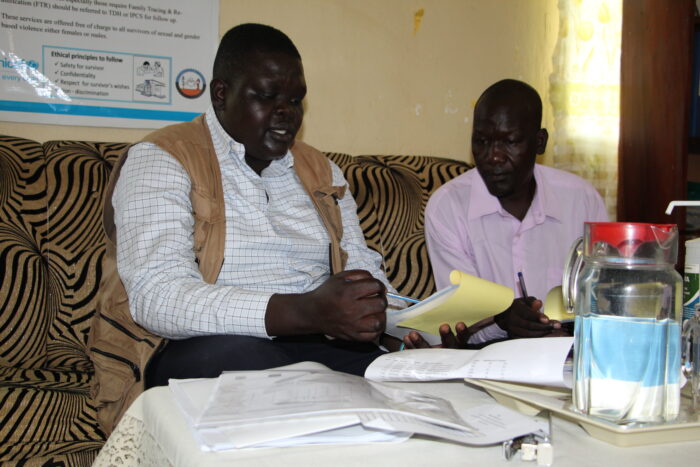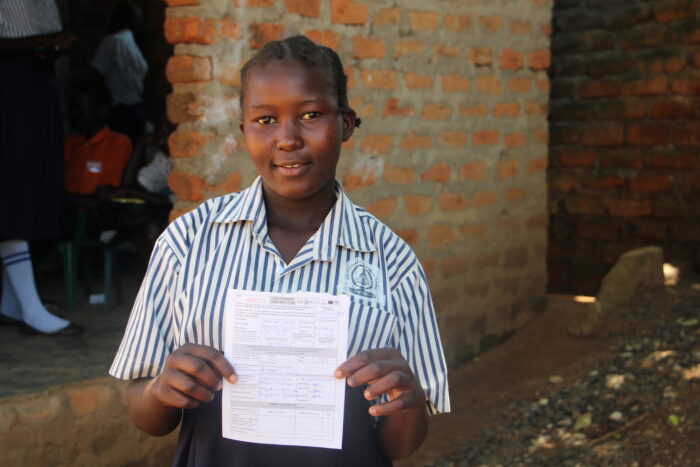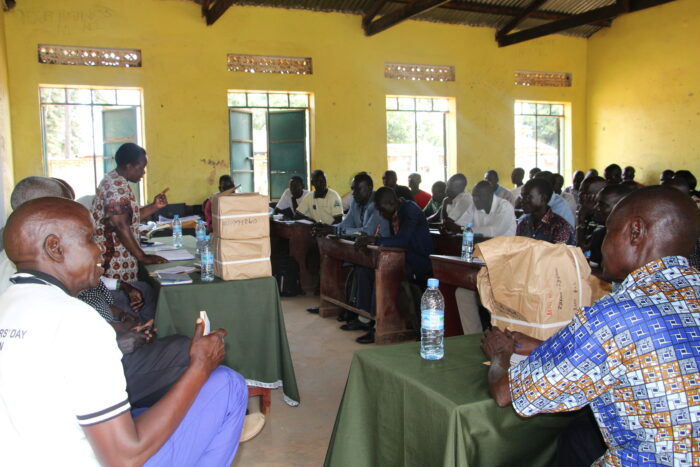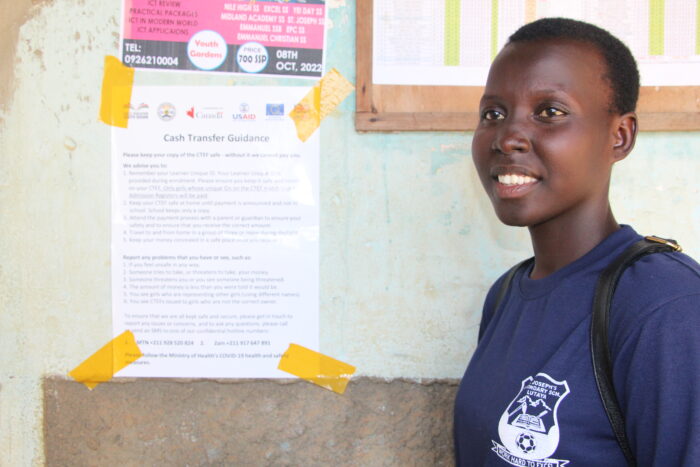GESS Cash Transfer Validation: a photo story
November 1, 2022 2:51 pmGirls’ Education South Sudan (GESS) continues to pay cash transfers to schoolgirls in South Sudan. Cash transfers are direct payments made to girls enrolled in and regularly attending school. All girls from Primary 5 to Secondary 4, including girls with disabilities, are eligible to receive a cash transfer.
The cash transfer payment process is a rigorous exercise that starts with validation. The validation exercise is carried out across the country to confirm the number of girls that are eligible to receive cash transfers.
During validation, GESS ensures that:
- Details of every girl are captured correctly
- Details on the pupil admission registers (PARs), including the Unique Learner IDs, match the names on the Cash Transfer Enrolment Form (CTEF)
- Girls who have changed schools are removed from the list of that school
- Learners are issued with a CTEF
- Head Teachers and school administrators are briefed on the cash transfer payment process before it starts.

GESS School Officer briefing a Head Teacher ahead of validation.
This year, GESS has taken an extra step to ensure that the right girls are paid by issuing each learner a ‘Unique Learner ID’. This is a unique identification number, issued to every learner at the time of enrolment. This number is then transferred to the learner’s CTEF during the validation exercise. The ‘Unique Learner IDs’ on the CTEF and the PAR must match for girls to be validated to receive a cash transfer.

Schoolgirl holding her Cash Transfer Enrolment Form (CTEF) after validation
Various stakeholders, including officials from the national Ministry of Education and Instruction (MoGEI), State Ministries of Education (SMoE) and GESS staff take part in this exercise. The team involved in the validation exercise braves challenges, including flooding to ensure that they reach all areas to be validated. The involvement of MoGEI officials is to ensure the exercise runs smoothly and quickly.
All parties involved in the exercise work to ensure only the correct girls receive the cash transfer. “This money is meant for our daughters to be able to stay in school. We should ensure that the right girls registered in school are the ones who receive the money. We should not add names of girls who are not in school,” Juan Margret, a County Education Director in Yei River County.
“If we do the wrongs thing, like giving Cash Transfer Enrolment Forms to the wrong girls, then we are not raising good children because we’ll give a bad example. We have to give an example to our learners by only ensuring girls registered in school and attending classes are paid,” Ms Juan adds.

Juan Margret, County Education Director in Yei, addressing Head Teachers ahead of validation.
Whilst GESS works with MoGEI to ensure the validation exercise is smooth, Head Teachers and teachers support the whole process in the schools by sharing information on cash transfers during school assemblies and directing learners to posters with key information displayed in the schools.

A schoolgirl near a poster with cash transfer guidelines
Cash transfers are addressing the high rate of dropout, particularly from Primary 6 and as well as the transition from Primary to Secondary school. This is done through allocating differential amounts to girls in candidate classes (Primary 6 and Secondary 4) to cater to their unique needs and improve transition and completion rates.
Girls are known to spend their cash transfer on school enabling items like books, pens, sanitary towels, and school uniforms. “When the headteacher told us that we’ll be given forms (CTEFs) for receiving money, I was happy, it is the first time I am going to receive this money and I know what I am going to spend it on. Sometimes I feel shy to ask for money from my husband to buy school requirements because I feel I am burdening him, when I receive the money, I will relieve him of that burden” Kiden, learner, Yei.
GESS continues to deliver cash transfers to schoolgirls across South Sudan, ensuring every deserving girl receives the money. Cash transfers are known to encourage girls to stay in school and complete school.
For more information on GESS, go here.
Categorised in: Cash Transfers
Comments are closed here.